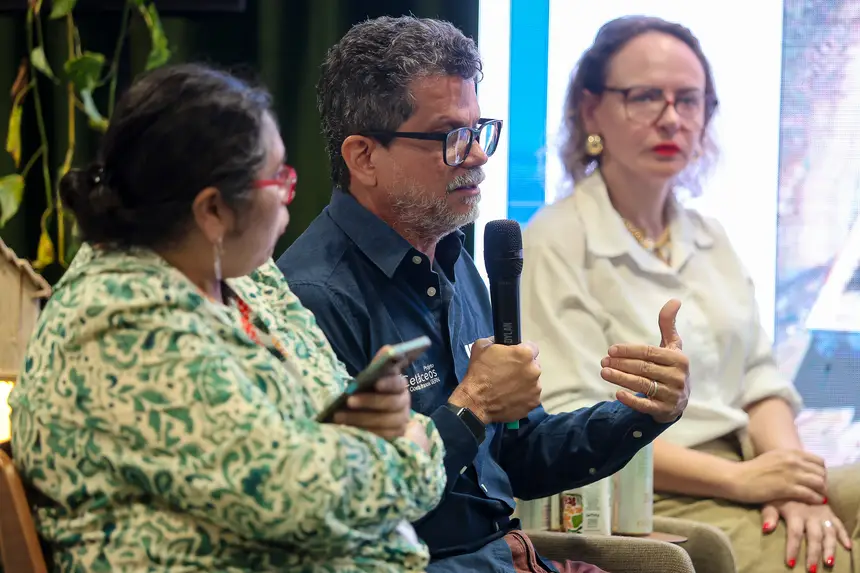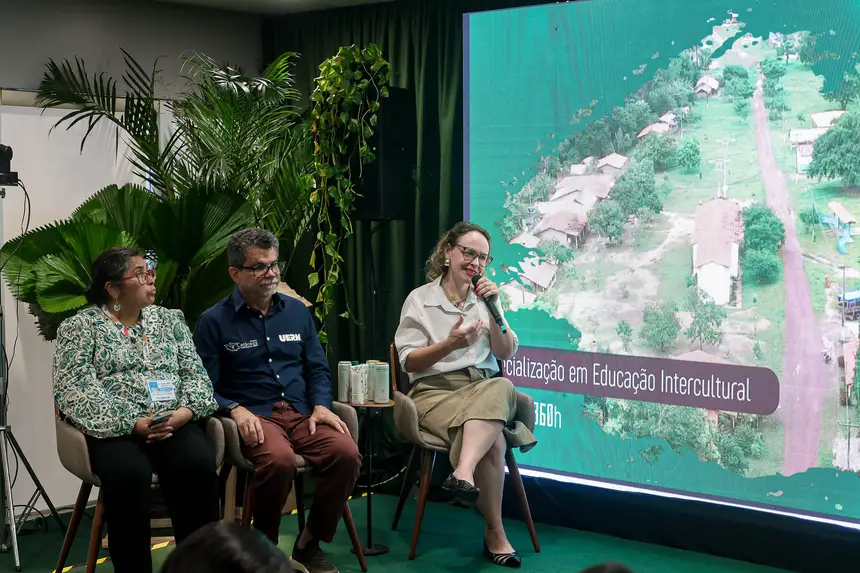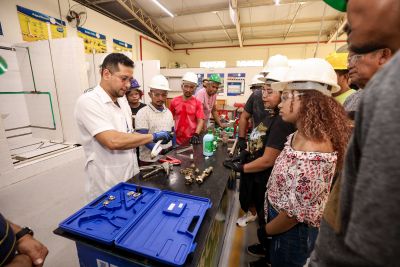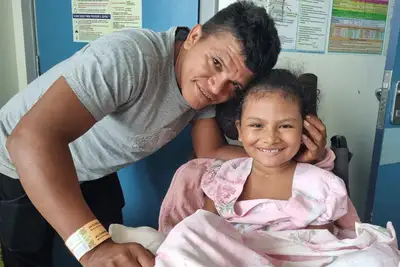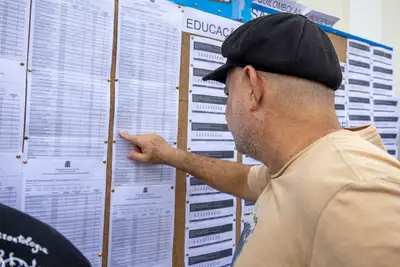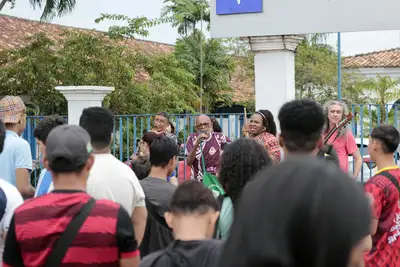National and International Experts Discuss Biodiversity at Uepa Panel
The program integrated the agenda dedicated to discussing strategies that unite ancestral and scientific knowledge to strengthen climate justice in Brazil
The State University of Pará (Uepa) proposed and held, this Monday (17), the panel "Biodiversity and Biocultural Heritage" at the Pará Pavilion in the Green Zone of COP30. With the theme "Biodiversity, Multisectoral Governance, and Biocultural Heritage," the meeting encouraged reflection on ways to strengthen the implementation of the Climate Plan – Biodiversity and the Paris Agreement, articulating environmental preservation with the protection of traditional cultures and territories.

"I believe it was an interesting space for debate, for us to understand and see how our biodiversity, our biocultural heritage, is under threat in this current scenario of climate change. It was an interesting moment, where we sought and shared some knowledge," said Uepa professor Iedo Souza, coordinator of the panel.
Response - The program also highlighted the importance of multisectoral governance as an essential mechanism to respond to the climate emergency, ensuring the participation of various social segments and the safeguarding of Brazilian biocultural heritage.
Throughout the discussion, national and international initiatives capable of inspiring public policies and collaborative actions were presented.
The panel brought together experts working in different fields of research and socio-environmental defense, such as Edmundo de Almeida Gallo from the Oswaldo Cruz Foundation (Fiocruz); Yohana Coñuecar Llancapani from the Network of Indigenous Women for the Defense of the Sea, from Chile; Uepa professor Eliane de Castro Coutinho; Flávio José de Lima Silva from the State University of Rio Grande do Norte (UERN), and Lígia Tchaicka from the State University of Maranhão (Uema).
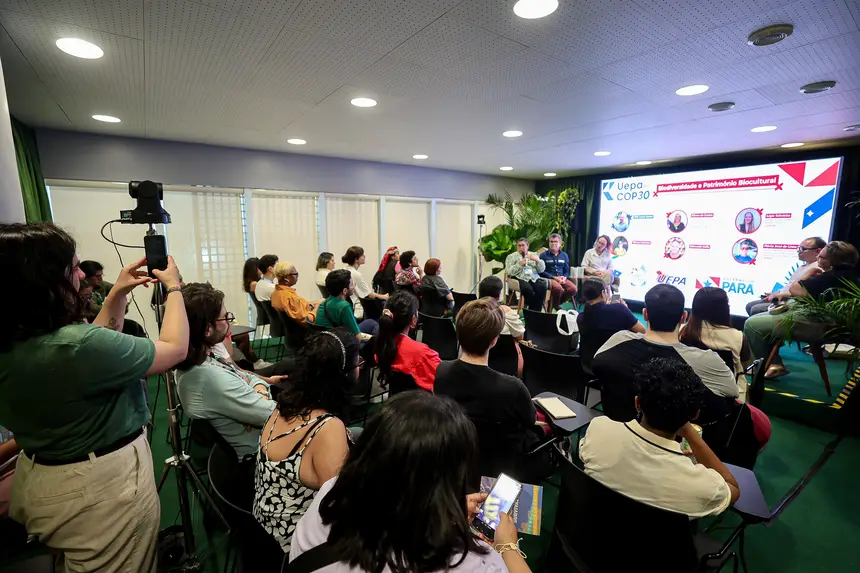
Held in the Seringueira Room at the Pará Pavilion, the panel presented experiences that reinforce the urgency of adaptation actions to the adverse effects of the climate emergency, participatory and multi-level climate governance, and the promotion of climate justice as pillars for the protection of biodiversity and biocultural heritage in Brazil.


